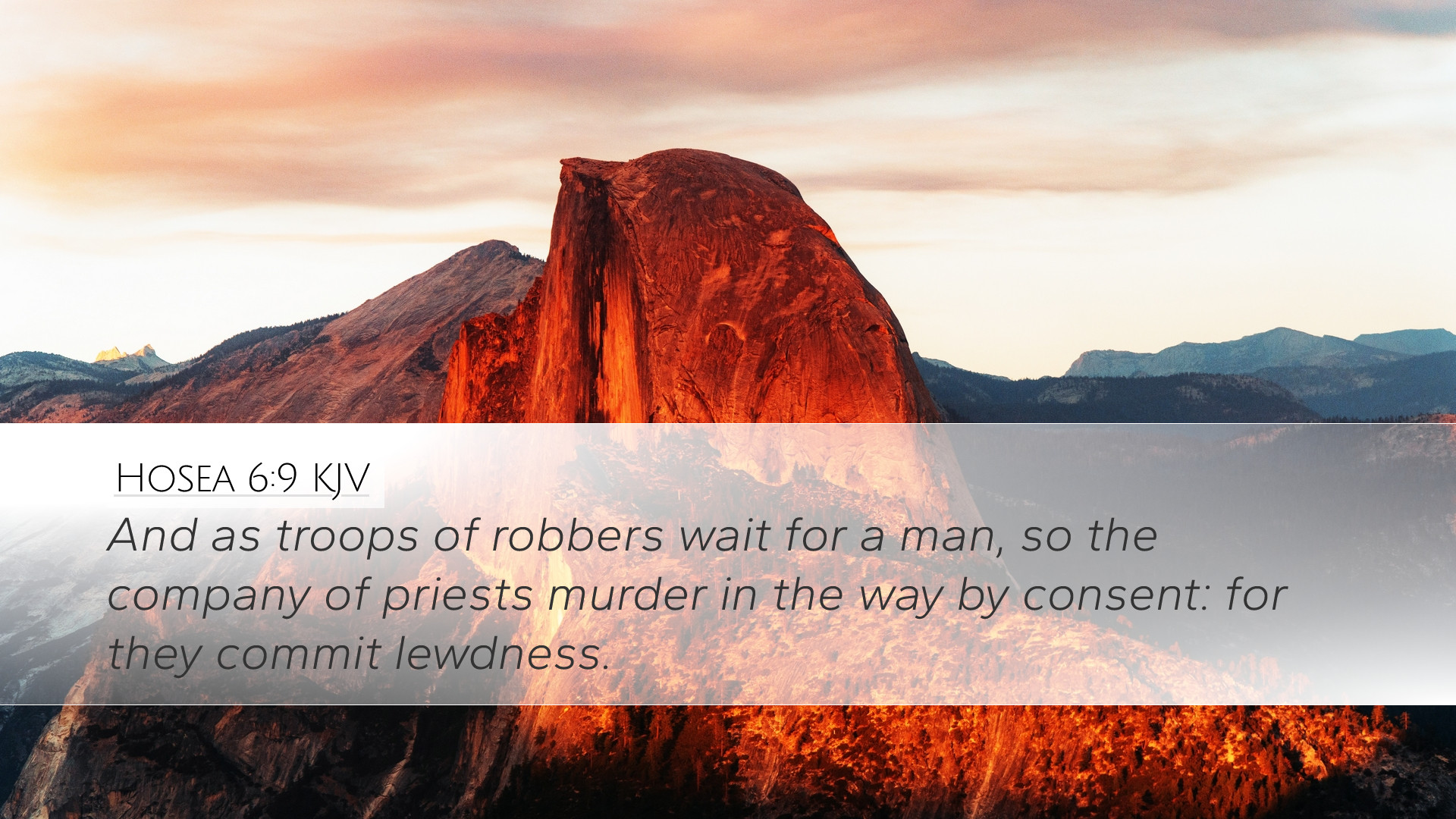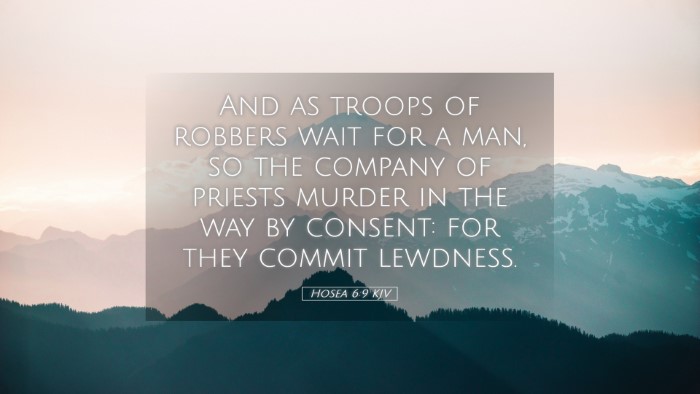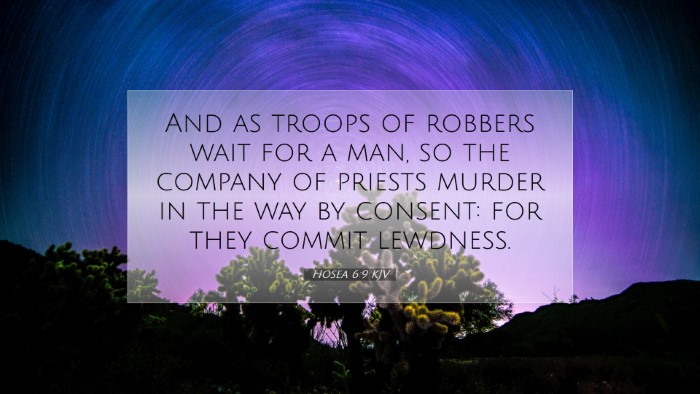Old Testament
Genesis Exodus Leviticus Numbers Deuteronomy Joshua Judges Ruth 1 Samuel 2 Samuel 1 Kings 2 Kings 1 Chronicles 2 Chronicles Ezra Nehemiah Esther Job Psalms Proverbs Ecclesiastes Song of Solomon Isaiah Jeremiah Lamentations Ezekiel Daniel Hosea Joel Amos Obadiah Jonah Micah Nahum Habakkuk Zephaniah Haggai Zechariah MalachiHosea 6:9
Hosea 6:9 KJV
And as troops of robbers wait for a man, so the company of priests murder in the way by consent: for they commit lewdness.
Hosea 6:9 Bible Commentary
Bible Commentary on Hosea 6:9
Verse: "And as troops of robbers wait for a man, so the company of priests murder in the way by consent: for they commit lewdness." (Hosea 6:9, KJV)
Contextual Overview
The context of Hosea is vital for making sense of this poignant verse. Hosea prophesied during a time of moral decay in the Northern Kingdom of Israel, where idolatry and unfaithfulness to God characterized the life of the people. This particular verse stands out in its stark condemnation of the religious leaders, showing that they are just as culpable as the robbers and wrongdoers they are supposed to lead in righteousness.
Commentary Insights
Matthew Henry's Commentary
Matthew Henry emphasizes the premeditated and concerted action of priests in their betrayal of the divine trust. He draws a parallel between the robbers who lie in wait for innocent victims, and the priests who conspire in wickedness, reflecting a profound moral failure. He notes that just as robbers conspired to commit their crimes, the priests colluded in their iniquities. Furthermore, Henry points out that the lewdness mentioned indicates not only sexual immorality but also a broader unfaithfulness to God’s covenant.
Albert Barnes' Notes
Albert Barnes expands on the themes of corruption and moral decline among Israel's leaders. He interprets the "company of priests" as a metaphor for the collective responsibility of those in spiritual authority. Barnes underscores that rather than leading with integrity, these leaders have participated in injustices, thereby contributing to the spiritual demise of the nation. He further highlights that their actions have fostered a culture of violence and immorality, undermining the very essence of their priestly roles.
Adam Clarke's Commentary
Adam Clarke provides a historical and linguistic examination of the text. He describes the phrase "as troops of robbers" as indicative of a planned and coordinated attack, mirroring how the priests engaged in their treachery. Clarke offers insights into the cultural implications of the verse, remarking that priests, who should be protectors and mediators for the people, have instead become agents of violence and decay. His commentary underscores the gravity of their sinful actions, which reflect the larger societal corruption.
Theological Implications
This verse illustrates crucial theological themes, including the nature of leadership and the consequences of moral failure. The priests' actions are not just individual sins but represent a systemic breakdown of trust and integrity within the faith community. The metaphor of robbers points to a betrayal that is intentional and destructive. It serves as a warning for contemporary leaders regarding the importance of upholding ethical standards and spiritual fidelity.
Application for Today
For pastors and spiritual leaders, this passage reminds them of their profound responsibilities. Leadership in the Church requires a commitment to truth, righteousness, and advocacy for the vulnerable. The dangers of collusion in sin, whether deliberate or through negligence, are starkly highlighted in Hosea's message. This warning is timeless, urging modern-day leaders to examine their conduct, allegiance to God, and the impact of their actions on their congregations.
Conclusion
Hosea 6:9 serves as a solemn reminder of the weight that comes with spiritual authority. The combination of insights from Matthew Henry, Albert Barnes, and Adam Clarke provides a comprehensive view of both the context and the implications of this verse. Thus, it challenges all who bear the mantle of leadership in faith communities to reflect deeply on their roles and responsibilities in serving faithfully and leading justly.


